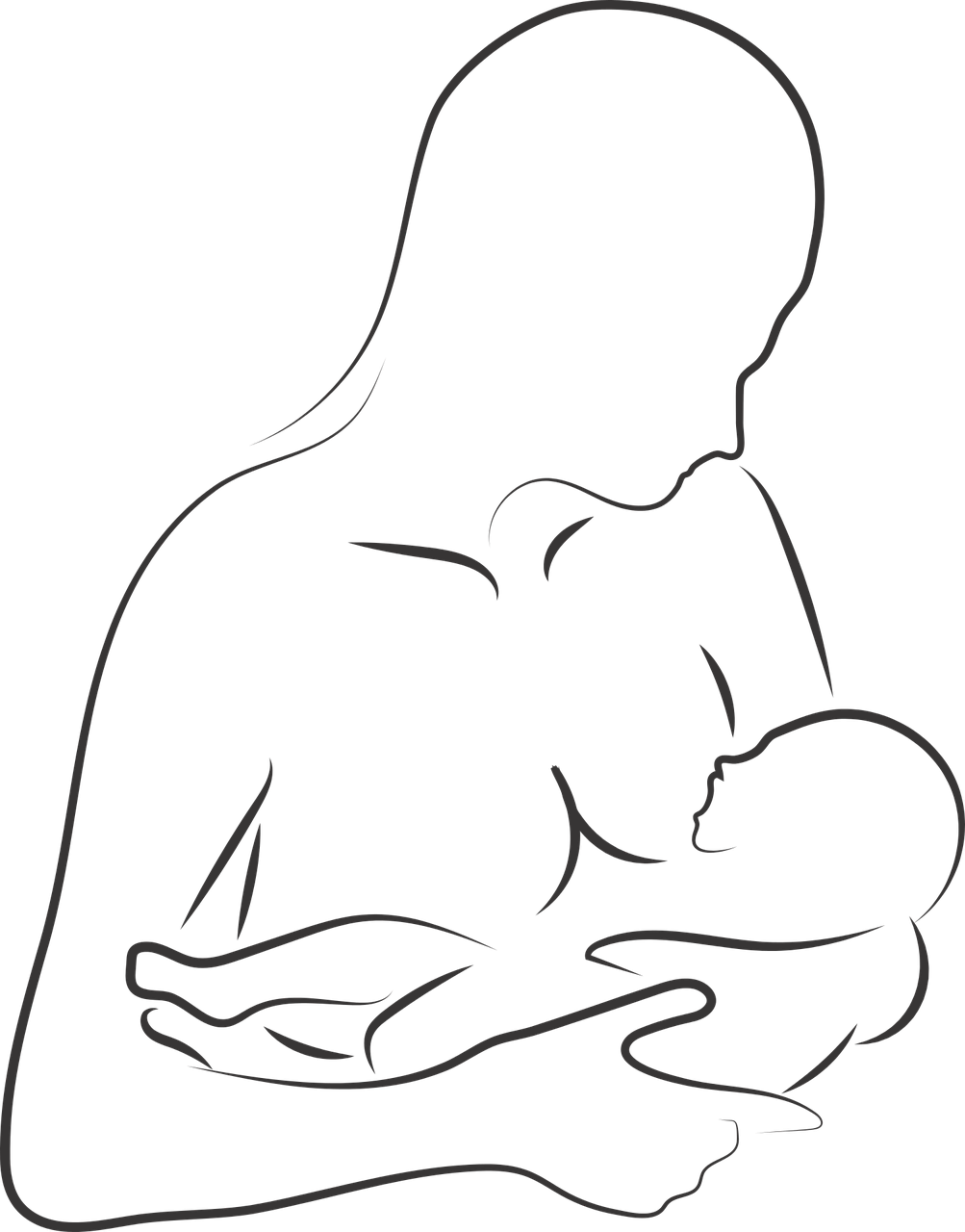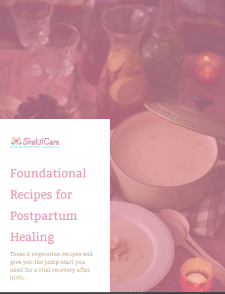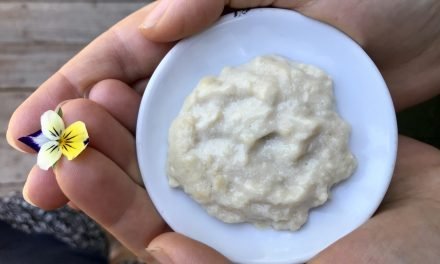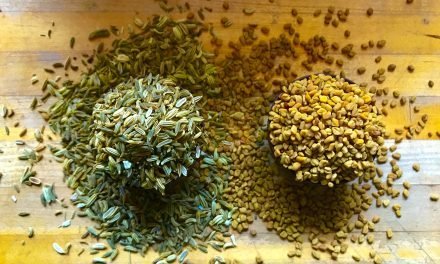
The greatest gift you can give your newborn besides life itself, is excellent baby care. The care and nourishment received in infancy will serve them throughout their entire lives. Essential baby care elements such as high-quality breast milk and daily oil massage, will ensure that your child will flourish from a solid foundation of health and well-being. Outlined in this guide are all of the essential elements necessary to create this solid foundation.
Intertwined with the health of your newborn, is your own postpartum health. Your vibrant health is of paramount importance, so that you may transmit this vitality to your newborn. Proper postpartum care of mama is an essential part of baby care that should most certainly be incorporated into your postpartum care plan.
Your vibrant health is of paramount importance, so that you may transmit this vitality to your newborn
Resting & Nesting
Resting and nesting together with your newborn is a very important aspect of baby care. Sleeping together, snuggling, skin on skin contact and breastfeeding undistractedly, all help create a strong bond between you and your baby.
The Nest
Your body is where your newborn has called home up until now. Creating a sacred, womb-like container dedicated to nurturing and bonding, is a wonderful way to ease your newborn’s transition from the womb into life in the outside world.
Whether your nest is your bedroom or your entire house, create a sacred space with these elements for your 6-week postpartum window
- Extra warmth – Use a space heater or fireplace to warm up the nest somewhere between 75-80 degrees Fahrenheit.
- Diffused light– Sheer curtains for daytime resting, real or battery operated candles for evening light.
- Extra blankets and pillows– Extra comfort for mama and baby during snuggle time.
- Calming music – Meditative music such as nature sounds, chanting or Indian ragas helps create a restful, healing mood.
- Hot water bottles – Fill with warm water and put under sheets for you and baby to lie on.
- Essential oil diffuser – Add healing aromas to the air. Lavender for deep relaxation and thieves blend to protect against germs. Hold off on incense until the baby is a little older. Avoid synthetic air fresheners.

Tips for Baby’s Best Rest & Rhythm
- Don’t tiptoe around your baby during the day. There is no need to whisper. Talk normally and allow your older children to play. As your baby awakens more into this world, they will become more alert during the day and sleep deeper at night. This encourages a healthy sleep pattern essential for your mental well-being!
- Swaddle your baby. Since baby has been curled up in your womb for 9 months, they are used to being in a warm, secure, confined space. Swaddling will help them rest deeper.
- Apply warm sesame oil to your baby’s fontanelle and cover with a cap. This will help protect your baby from outside energies and promote deeper sleep.
- Developing a daily rhythm for eating, sleeping, massage, baths and quiet time will benefit both you and your baby immensely. Adding structure to daily life, allows for greater stability and deeper rest.
- Limit visiting time to avoid disruption of daily rhythms and rest. This is especially true in the first 3 weeks. Too many visitors could disrupt the deep rejuvenation and bonding necessary during this sacred time, as well as accidentally introduce germs and sickness into your nest. Make sure to use thieves oil blend in the essential oil diffuser during and after visits!
- Stay indoors for the first few weeks. Both you and your baby’s immune system and energies are highly sensitive at this time. If you really need to go outside to get some fresh air, leave the baby inside if at all possible.

Baby’s Bellies
There are many elements at play that can effect a baby’s digestion. Some babies are blessed with happy and resilient baby bellies, while others are stricken with terrible colic.
No mother (or father) wants to bear witness to the unrelenting screams of their colicky baby. What have we been taught to prevent it? Eliminating things like broccoli, cabbage and chilies from your postpartum diet is unlikely to be enough. Lucky for us, we can draw on practical Ayurvedic baby care wisdom to guide our way to happy baby bellies.
Breast Milk
High quality breast milk is nectar for your baby. It ensures a healthy immune system, digestive system, as well as delivers perfect custom nourishment to their entire body.
High quality breast-milk is easily digestible, promotes growth and development and of course happy baby bellies. 🙂
Not all breast milk is created equal. If you are eating difficult to digest foods such as red meat, aged cheeses, frozen casseroles or leftovers, I would bet your breast-milk is also difficult to digest. Such milk puts added strain on baby’s still developing digestive system, which can develop into upset baby bellies and colic.
Good baby care involves mama eating a postpartum diet focused on easy to digest, well-spiced, nourishing foods is a key factor in your baby’s digestive health.

Formula
It is best, if at all possible to breastfeed your baby. If this is not an option, an organic, non-homogenized (cream top) cow or goat milk formula should be used. Avoid the use of soy formulas. High levels of estrogen are found in soy, which can be problematic for the health of your developing child.
To aid digestibility, first bring formula to a boil and cool to body temperature. This simplifies the milk protein molecule for your baby’s sensitive system. Always serve formula warm, never cold or even room temperature. Baby will enjoy it more and be less likely to have digestive and other health imbalances.
Feeding Tips
- Nurse on demand for the first 2 weeks. After that, allow at least 2 hours between feedings to allow ample time for digestion.
- Hold your baby at an angle when nursing. Having their head above their feet will help gravity move the milk down through their digestive tract.
- Burp your baby after feeding. This may seem obvious, but I didn’t know to do it with my baby! This helps ingested air bubbles work their way back out quickly. Otherwise, poor baby has to work them through their sensitive digestive system. Not fun!
Healthy Elimination
Healthy elimination begins with at least 3 wet diapers a day (before your milk comes in) and 6 wet diapers a day thereafter. After a couple of days, the baby should be done passing meconium, and at least 3 poopy diapers a day is expected.
Your baby’s first few poops will be a dark tarry substance called meconium. It is best to use disposable diapers the first few days, because meconium is very sticky and hard to wash out. Next, it will transform into a lighter yellow green color that is less sticky.
This in turn will transition into a yellow, creamy poop that can be runny. It will stay this consistency until you introduce solids. If after 5 days, your baby’s poop is red, white, grey, like tar, very watery or hard, contact your birth professional.
Although western baby care experts believe constipation in breastfed babies isn’t a serious concern, your baby is likely to be uncomfortable if they don’t eliminate every day. If your baby seems to be constipated and uncomfortable, you can dip your finger in ghee or castor oil and let them suck it off, or rub a small amount around your nipple. This small amount of added lubrication can help them have a smooth move. If this seems to be a regular occurrence, it is likely that you will need to assess and adjust your diet as well.
Managing Upset Bellies & Colic
If your baby cries and pulls their legs tight to their belly, twists or arches their back, they may be experiencing discomfort in their belly, usually from gas. There can be many contributing factors to this including your diet, formula, complications from the birth, presence while nursing, and even emotional upset. The first place to look when trying to assess the origin of your baby’s discomfort, is your diet.
Postpartum Diet
The most important aspect of a good postpartum diet is rekindling a strong digestive fire. Without digestive strength, virtually anything you eat will move through your system partially unprocessed. This will lead to heavy, hard to digest breast-milk and eventually to upset baby bellies and colic. It is important to eat warm, soupy, easy to digest foods. Adding plenty of digestive spices to your meals and teas also is important to aid your digestive strength.

Baby Massage
Daily baby massage with warm sesame oil is one of the best ways to remedy upset bellies and colic. Warm sesame oil is very grounding and soothing to your baby’s sensitive system. It can help prevent digestive and emotional problems, as well as reverse colic and constipation.
- For a quick fix: massage baby’s belly with gentle clockwise circles, circling from the bellybutton outward to the descending colon. Do this 9X and apply a warm washcloth to the belly for a few minutes. Make sure the room is extra warm!
Mama's Menu: Ayurvedic Recipes For Postpartum Healing
If you are ready to regain your vitality after birth through a delicious postnatal diet, this cookbook is for you!
Baby Exercises
Baby exercises help expel gas from your baby’s belly, offering them much welcomed relief.
- For a quick fix: Loosen baby’s diaper and bring their knees together. With gentle firmness push their knees up to their belly and hold there (don’t let their knees separate from each other). At this point you might notice them trying to release gas or stool. Give them encouragement to do so. After 10-15 seconds release and repeat until baby feels more comfortable.
Simple Herbal Remedies for Upset Baby Bellies
- Apply a small amount of warm castor oil to your baby’s belly and place a warm compress over it for 10-15 minutes. A warm washcloth or baby hot water bottle works well.
- Fennel seed tea – both mother and baby can drink this. Bring 1 teaspoon of fennel seeds to a boil in 1 cup of water. Steep 10 minutes and strain. Mother can drink and also give a few drops to baby.
- Add a few grains of asafoetida powder in 1/2 teaspoon of water and apply in baby’s bellybutton. Asafoetida (hing) is an Indian spice that is an excellent digestive and helps relieve gas. Available at Indian grocery stores and some health food stores.
Baby Massage & Bath
Massage
Daily warm sesame oil massage is an essential element to your baby care routine. It is one of the two most effective ways to ensure your baby’s health far into the future (the other is producing high quality breast-milk).
Daily warm oil massage enhances your baby’s immune strength and T-cell production, helps prevent/reverse colic, promotes healthy elimination, as well as promoting deep sleep and weight gain.
Giving your baby oil massage every day helps promote bonding, and is an excellent opportunity for the father and siblings to connect more deeply with the baby and provide some essential baby care.
Bath
A nice warm bath is the perfect ending to this essential baby care routine. Avoid using harsh chemicals and soaps on baby’s skin. Use a mild unscented glycerine soap or better yet, an Ayurvedic pudding soap made with milk and garbanzo bean flour.
After baby has arrived, you will have your hands full, no doubt! Being prepared with the essential elements needed to ensure both you and your baby’s well being will empower you to have the postpartum experience of your dreams. Rest in bliss with your angel. It is in fact, your birthright.














I am 2 weeks postpartum , experiencing pain in legs and pelvis , what should I do
Hi Monika,
You may want to see a pelvic floor specialist. Check out this blog post on healing your pelvic floor.
I also recommend watching my free masterclass on postpartum recovery. There is A LOT to fully recovering from birth, and most of us don’t even know where to get started. You will learn a lot.
Finally, if you would like recommendations on fast, reliable nutrition for better health, energy, sleep and milk supply, you can book a free 30 minute nutrition consultation with me here.